New Editor Picks O. Henry Winners
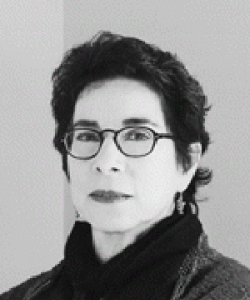
Laura Furman, the first female O. Henry series editor in more than forty years, has instituted some changes to the process of selecting stories for her first volume, due out next month from Anchor.
Jump to navigation Skip to content
Articles from Poet & Writers Magazine include material from the print edition plus exclusive online-only material.

Laura Furman, the first female O. Henry series editor in more than forty years, has instituted some changes to the process of selecting stories for her first volume, due out next month from Anchor.
Literary MagNet chronicles the start-ups and closures, successes and failures, anniversaries and accolades, changes of editorship and special issues—in short, the news and trends—of literary magazines in America. This issue's MagNet features Poetry, Poems & Plays, the Sow’s Ear Poetry Review, Bloom, the Harvard Advocate, Harvard Review, Meanjin, and Vallum.
Page One features a sample of titles we think you'll want to explore. With this installment, we offer excerpts from Bring Me Your Saddest Arizona by Ryan Harty, Indiana, Indiana by Laird Hunt, and Eyeshot by Heather McHugh.
As more and more literary journals develop online counterparts to enhance, complement, and extend the presence of their print editions, editors—despite their love of the physical object—are finding new was to take advantage of the cost-effective and virtually boundless medium.
Carol Seajay, former publisher of Feminist Bookstore News, a San Francisco–based magazine that covered the feminist, gay, and lesbian book industry until folding in 2000, recently launched Books to Watch Out For, a series of monthly e-mail newsletters featuring reviews of gay and lesbian books.
In her Pulitzer Prize–winning first book, The Interpreter of Maladies, Jhumpa Lahiri explores the struggle of first- and second-generation Indian Americans bridging the gap between the country they call home and the heritage that defines them. Her much-anticipated first novel, The Namesake, explores a similar theme.
They don’t command the best-seller lists, nor do they show up on reviewers’ desks, but the classics—those books of enduring quality that year after year grace high school and college syllabi and circulate in community book clubs—are the cash cows of the publishing industry: reliable, predictable, and above all, steady sources of revenue. Penguin Classics, Oxford World’s Classics, Bantam Classics, Dover Publications, and the Modern Library are among the leading publishers of their kind in the United States. This spring, Barnes & Noble joined them with its own imprint: Barnes & Noble Classics.
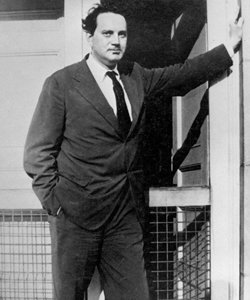
Five years ago, in the early morning of July 24, 1998, Thomas Wolfe’s childhood home in Asheville, North Carolina, was nearly destroyed by fire. Since then, conservation specialists and staff at the Thomas Wolfe Memorial have worked to reconstruct the museum and hope to reopen it this fall.
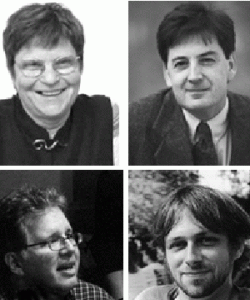
mong organizations hit hardest during the post-9/11 era, in which funding for the arts has been sharply curtailed, literary nonprofits are struggling to simultaneously serve their missions and remain solvent. Despite the economic downturn, two nonprofit organizations—Milkweed Editions, a small press based in Minneapolis, and the St. Mark's Poetry Project in New York City—have maintained financial stability, but more challenges lie ahead: The directors of both organizations, Emilie Buchwald and Ed Friedman, recently retired.
Literary MagNet chronicles the start-ups and closures, successes and failures, anniversaries and accolades, changes of editorship and special issues—in short, the news and trends—of literary magazines in America. This issue's MagNet features the Believer, Partisan Review, Mid-American Review, the Paris Review, One Story, 32 Poems Magazine, and Tin House.
Page One features a sample of titles we think you'll want to explore. With this installment, we offer excerpts from A Million Little Pieces by James Frey and Big Back Yard by Michael Teig.
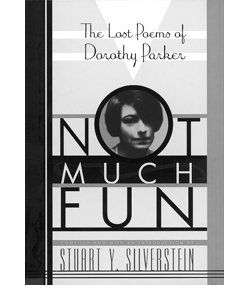
On April 4, United States District Court Judge John F. Keenan ruled in favor of Stuart Y. Silverstein in a plagiarism suit he filed against Penguin Putnam in 2001. Silverstein, who compiled Not Much Fun: The Lost Poems of Dorothy Parker (Scribner, 1996), claimed in his lawsuit that Penguin infringed on his copyright by publishing Dorothy Parker: Complete Poems, which includes a section titled “Poems Uncollected by Parker,” the identical poems published in Not Much Fun.
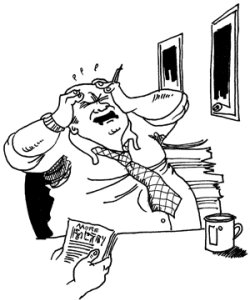
Book review editors—those powerful yet inundated tastemakers who choose from the more than 130,000 new books published each year the mere shelfful that are reviewed—get used to (and bored with) having nasty motives ascribed to them. This second installment of a three-part series on book reviews examines the subject at hand from the perspective of the assigning editors, who would like to set the record straight.
D.H. Lawrence returned to Italy in 1927 after a soul-searching journey through Mexico, the American Southwest, Ceylon, Australia, and New Zealand. Gravely ill with tuberculosis, unaware of how little time he had left (he died three years later at the age of 44), Lawrence sought an ideal land where he might flourish as a "whole man alive" and find an antidote for the alienation of industrialized society.
Mark Doty's work has always straddled the line between a sense of belonging and alienation, so it's no surprise to find the crucial question, Where do I live? at the heart of his forthcoming book
Should an author simply count herself lucky to have landed a book deal, or should she fight for what she wants during the various stages of publishing it—the editing process, cover design, and promotion? Before deciding, it's important to understand what obstacles might stand in the way before encountering them and what to expect from all the effort.

The UN has declared the next ten years the UN Literacy Decade. During this period the United Nations Educational, Scientific, and Cultural Organization will initiate its "International Plan of Action," designed to mobilize national governments, public and private organizations, universities, and local communities to create literacy programs, research who will most benefit from such programs, and find ways to monitor their success so that they can be improved upon and replicated elsewhere.
Literary MagNet chronicles the start-ups and closures, successes and failures, anniversaries and accolades, changes of editorship and special issues—in short, the news and trends—of literary magazines in America. This issue's MagNet features Maize, Our Time Is Now, UR-VOX, Smartish Pace, and the Beloit Poetry Journal.
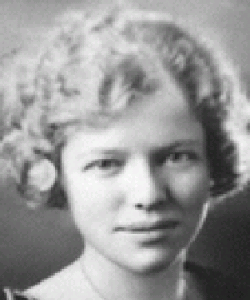
This year marks the centennial of Niedecker's birth. To celebrate, libraries and bookstores in her home state are planning a series of events that will draw poets, scholars, and readers to the places that inspired and influenced her poetry.
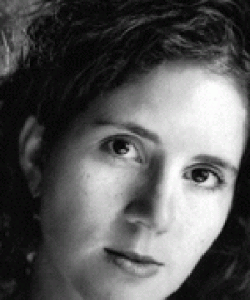
Amanda Davis, author of the short story collection Circling the Drain and cornerstone presence to many in and beyond the literary world, died in a plane crash on March 15, 2003, while on tour promoting her first novel, Wonder When You'll Miss Me.
Last month Jonathan Tasini, who is recognizable to most writers due to his association with the high-profile lawsuit against the New York Times, resigned as president of the National Writers Union, an advocacy group for freelance writers and is now heading the Creators Federation, an international coalition of writers and artists working in all media and the organizations that represent them.
An author recalls his reaction to reviews of his first book.

The ninth novel and eighteenth book by Harry Mark Petrakis, who turns 80 on June 5, will be published by Southern Illinois University Press in the same month. Twilight of the Ice is set in the Chicago railyards, in the blue-collar, industrial neighborhoods of the early 1950s. In this elegy to a rough crew of railroad car icemen facing obsolescence in the advent of modern refrigeration, the Chicago author who was twice shortlisted for the National Book Award again finds nobility in the struggles of immigrants and working people.
Colum McCann's most recent novel, Dancer, published by Henry Holt in January, reimagines the life and the international milieu surrounding the Russian ballet dancer Rudolf Nureyev, who died in 1993.
Literary MagNet chronicles the start-ups and closures, successes and failures, anniversaries and accolades, changes of editorship and special issues—in short, the news and trends—of literary magazines in America. This issue's MagNet features Rosebud, Pleiades, Fizgig, American Letters & Commentary, Shiny, Brevity, and Canary River Review.